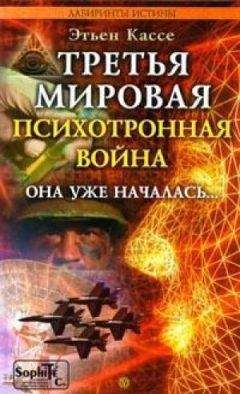Adam Makkai - Словарь американских идиом: 8000 единиц
[dry out]{v. phr.} To cure an alcoholic. •/A longtime alcoholic. Uncle Steve is now in the hospital getting dried out./
[dry up]{v.} 1. To become dry. •/The reservoir dried up during the four-month drought./ 2. To disappear or vanish as if by evaporating. •/The Senator’s influence dried up when he was voted out of office./ 3. {slang} To stop talking. — Often used as a command. •/"Dry up!" Tony said angrily when his friend told him for the third time that he had made a mistake in his theme./ Syn.: SHUT UP(1).
[dual highway] See: DIVIDED HIGHWAY.
[duck] See: DEAD DUCK, KNEE HIGH TO A GRASSHOPPER or KNEE HIGH TO A DUCK, LAME DUCK, LIKE WATER OFF A DUCK’S BACK.
[duckling] See: UGLY DUCKLING.
[duck out]{v. phr.} To avoid; escape from something by skillful maneuvering. •/Somehow or other Jack always manages to duck out of any hard work./
[duck soup]{n.}, {slang} 1. A task easily accomplished or one that does not require much effort. •/That history test was duck soup./ 2. A person who offers no resistance; a pushover. •/How’s the new history teacher? — He’s duck soup./
[duddy] See: FUDDY-DUDDY.
[due] See: GIVE ONE’S DUE, GIVE THE DEVIL HIS DUE, IN DUE COURSE at IN GOOD TIME.
[due to]{prep.} Because of; owing to; by reason of. •/His injury was due to his careless use of the shotgun./ •/Joe’s application to the University was not accepted due to his failing English./
[dull] See: ALL WORK AND NO PLAY MAKES JACK A DULL BOY.
[dumb bunny]{n.}, {slang}, {informal} Any person who is gullible and stupid. •/Jack is a regular dumb bunny./
[dumbwaiter]{n.} A small elevator for carrying food, dishes, etc., from one floor to another in hotels, restaurants, or large homes. •/The banquet was delayed because the dumbwaiter broke down and the food had to be carried upstairs by hand./
[dumps] See: DOWN IN THE DUMPS or DOWN IN THE MOUTH.
[dust] See: BITE THE DUST, KICK UP A FUSS or KICK UP A DUST, WATCH ONE’S DUST, AFTER THE DUST CLEARS/WHEN THE DUST SETTLES.
[dust off]{v.}, {informal} 1. To get ready to use again. •/Four years after he graduated from school, Tom decided to dust off his algebra book./ 2. To throw a baseball pitch close to. •/The pitcher dusted off the other team’s best hitter./ Syn.: BRUSH BACK.
[Dutch] See: BEAT ALL or BEAT THE DUTCH, GO DUTCH, IN DUTCH.
[dutch treat]{n.}, {informal} A meal in a restaurant or an outing at the movies, concert, or theater where each party pays his or her own way. •/"I am willing to accept your invitation," Mary said, "but it will have to be Dutch treat."/
[duty] See: DO DUTY FOR, DOUBLE DUTY, HEAVY DUTY, OFF DUTY, ON DUTY.
[duty bound]{adj. phr.} Forced to act by what you believe is right. •/Abraham Lincoln walked miles once to return a few pennies that he had overcharged a woman because he felt duty bound to do it./ •/John felt duty bound to report that he had broken the window./
[duty calls]{n. phr.} One must attend to one’s obligations. •/"I’d love to stay and play more poker," Henry said, "but duty calls and I must get back to the office."/
[dwell on] or [dwell upon] {v.} To stay on a subject; not leave something or want to leave; not stop talking or writing about. •/Joe dwelt on his mistake long after the test was over./ •/Our eyes dwelled on the beautiful sunset./ •/The principal dwelled on traffic safety in his talk./ Compare: HARP ON. Contrast: TOUCH ON.
[dyed-in-the-wool]{adj. phr.} Thoroughly committed; inveterate; unchanging. •/He is a died-in-the-wool Conservative Republican./
[dying to]{adj. phr.} Having a great desire to; being extremely eager to. •/Seymour is dying to date Mathilda, but she keeps refusing him./
E
[each and every]{adj. phr.} Every. — Used for emphasis. •/The captain wants each and every man to be here at eight o’clock./ •/The teacher must learn the name of each and every pupil./ Syn.: EVERY SINGLE.
[each other] or [one another] {pronoun} Each one the other; one the other. •/That man and his wife love each other./ •/Bill and Mary gave one another Christmas presents last year./ •/All the children at the party were looking at one another trying to recognize one another in their masks and costumes./ •/The birds fought each other over the bread./
[eager beaver]{n. phr.}, {slang} A person who is always eager to work or do anything extra, perhaps to win the favor of his leader or boss. •/Jack likes his teacher and works hard for her, but his classmates call him an eager beaver./ •/The man who was promoted to be manager was an eager beaver who got to work early and left late and was always offering to do extra work./
[eagle eye]{n.} Sharp vision like that of an eagle; the ability to notice even the tiniest details. •/The new boss keeps an eagle eye on all aspects of our operation./
[ear] See: ABOUT ONE’S EARS or AROUND ONE’S EARS, BELIEVE ONE’S EARS, DRY BEHIND THE EARS, FLEA IN ONE’S EAR, GIVE AN EAR TO or LEND AN EAR TO, GO IN ONE EAR AND OUT THE OTHER, JUG-EARED, LITTLE PITCHERS HAVE BIG EARS, MUSIC TO ONE’S EARS, PIN ONE’S EARS BACK, PLAY BY EAR, PRICK UP ONE’S EARS, ROASTING EAR, TURN A DEAF EAR, UP TO THE CHIN IN or UP TO THE EARS IN, WET BEHIND THE EARS.
[early] See: BRIGHT AND EARLY.
[early bird]{n.} An early riser from bed. •/Jane and Tom are real early birds; they get up at 6 A.M. every morning./
[early bird catches the worm] or [early bird gets the worm] A person who gets up early in the morning has the best chance of succeeding; if you arrive early or are quicker, you get ahead of others. — A proverb. •/When Billy’s father woke him up for school he said, "The early bird catches the worm."/ •/Charles began looking for a summer job in January; he knows that the early bird gets the worm./ Compare: FIRST COME, FIRST SERVED.
[earn one’s keep]{v. phr.} To merit one’s salary or keep by performing the labor or chores that are expected of one. •/John earned his keep at the music conservatory by dusting off all the musical instruments every day./
[earnest] See: IN EARNEST.
[ears burn]{informal} To feel embarrassment or shame at hearing others talk about you. •/Joan overheard the girls criticizing her and it made her ears burn./ •/Joe’s ears burned when he heard his classmates praising him to each other./
[earth] See: COME BACK TO EARTH or COME DOWN TO EARTH, DOWN-TO-EARTH, IN THE WORLD or ON EARTH, MOVE HEAVEN AND EARTH.
[ear to the ground]{n. phr.}, {informal} Attention directed to the way things are going, or seem likely to go, or to the way people feel and think. •/The city manager kept an ear to the ground for a while before deciding to raise the city employees' pay./ •/Reporters keep an ear to the ground so as to know as soon as possible what will happen./
[ease] See: AT EASE or AT ONE’S EASE, ILL AT EASE.
[ease off] or [ease up] {v.} To make or become less nervous; relax; work easier. •/When the boss realized that John had been overworking, he eased off his load./ •/With success and prosperity, Mr. Smith was able to ease off./ Compare: LET UP(3).
[easily] See: BREATHE EASILY or BREATHE FREELY.
[east] See: DOWN EAST.
[easy] See: FREE AND EASY, GET OFF EASY, ON EASY STREET, TAKE IT EASY or GO EASY or TAKE THINGS EASY.
[easygoing]{adj.} Amiable in manner; relaxed; not excited. •/Because Al has an easygoing personality, everybody loves him./
[easy as pie] See: PIECE OF CAKE.
[easy come, easy go]{truncated sent.}, {informal} Something you get quickly and easily may be lost or spent just as easily. •/Grandfather thought Billy should have to work for the money Father gave him, saying "Easy come, easy go."/
[easy does it]{informal} Let’s do it carefully, without sudden movements and without forcing too hard or too fast; let’s try to just hard enough but not too hard. •/"Easy does it," said the boss as they moved the piano through the narrow doorway./ Compare: TAKE IT EASY.
[easy mark]{n.} A foolishly generous person; one from whom it is easy to get money. •/Bill is known to all the neighborhood beggars as an easy mark./ See: SOFT TOUCH.
[easy money]{n.}, {informal} Money gained without hard work; money that requires little or no effort. •/The movie rights to a successful play mean easy money to the writer of the play./ •/Young people who look for easy money are usually disappointed./
[eat] See: DOG-EAT-DOG, LIVE HIGH OFF THE HOG or EAT HIGH ON THE HOG, LOOK LIKE THE CAT THAT ATE THE CANARY.
[eat away]{v.} 1. To rot, rust, or destroy. •/Rust was eating away the pipe./ •/Cancer ate away the healthy flesh./ See: EAT OUT(2). 2. To gradually consume. •/The ocean waves were gradually eating the volcanic rocks until they turned into black sand./
[eat away at]{v. phr.} To psychologically gnaw at; to worry someone. •/Fear of the comprehensive examination was eating away at Sam./
[eat crow]{v. phr.} To admit you are mistaken or defeated; take back a mistaken statement. •/John had boasted that he would play on the first team; but when the coach did not choose him, he had to eat crow./ •/Fred said he could beat the new man in boxing, but he lost and had to eat crow./ Compare: BACK DOWN, EAT HUMBLE PIE, EAT ONE’S WORDS.
[eat dirt]{v. phr.}, {informal} To act humble; accept another’s insult or bad treatment. •/Mr. Johnson was so much afraid of losing his job that he would eat dirt whenever the boss got mean./
[eat (live) high on the hog] or [eat (live) high off the hog] {v. phr.} To eat or live well or elegantly. •/For the first few days after the check arrived, they ate high on the hog./ Compare: IN CLOVER or IN THE CLOVER, ON EASY STREET.
[eat humble pie]{v. phr.} To be humbled; to accept insult or shame; admit your error and apologize. •/Tow told a lie about George, and when he was found out, he had to eat humble pie./ •/In some old stories a boy with a stepfather has to eat humble pie./
[eating one]{v. phr.} To cause someone to be angry or ill-humored. •/We can’t figure out what’s eating Burt, but he hasn’t spoken one pleasant word all day./
[eat like a bird]{v. phr.} To eat very little; have little appetite. •/Mrs. Benson is on a diet and she eats like a bird./ •/Alice’s mother is worried about her; she eats like a bird and is very thin./ Contrast: EAT LIKE A HORSE.
[eat like a horse]{v. phr.} To eat a lot; eat hungrily. •/The harvesters worked into the evening, and then came in and ate like horses./ Contrast: EAT LIKE A BIRD.
[eat one out of house and home]{v. phr.} 1. To eat so much as to cause economic hardship. •/Our teenaged sons are so hungry all the time that they may soon eat us out of house and home./ 2. To overstay one’s welcome. •/We love Bob and Jane very much, but after two weeks we started to feel that they were eating us out of house and home./
[eat one’s cake and have it too]{v. phr.} To use or spend something and still keep it; have both when you must choose one of two things. Often used in negative sentences. •/Roger can’t make up his mind whether to go to college or get a job. You can’t eat your cake and have it too./ •/Mary wants to buy a beautiful dress she saw at the store, but she also wants to save her birthday money for camp. She wants to eat her cake and have it too./
[eat one’s heart out]{v. phr.} To grieve long and hopelessly; to become thin and weak from sorrow. •/For months after her husband’s death, Joanne simply ate her heart out./ •/We sometimes hear of a dog eating its heart out for a dead owner./
[eat one’s words] also [swallow one’s words] {v. phr.} To take back something you have said; admit something is not true. •/John had called Harry a coward, but the boys made him eat his words after Harry bravely fought a big bully./ Compare: EAT CROW.



